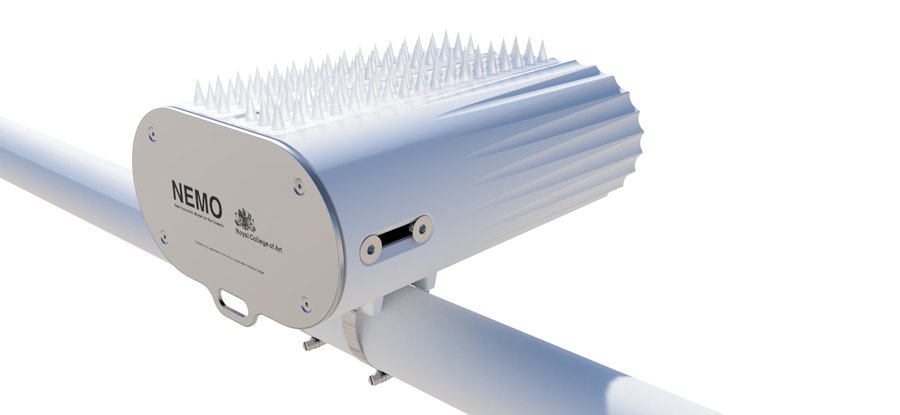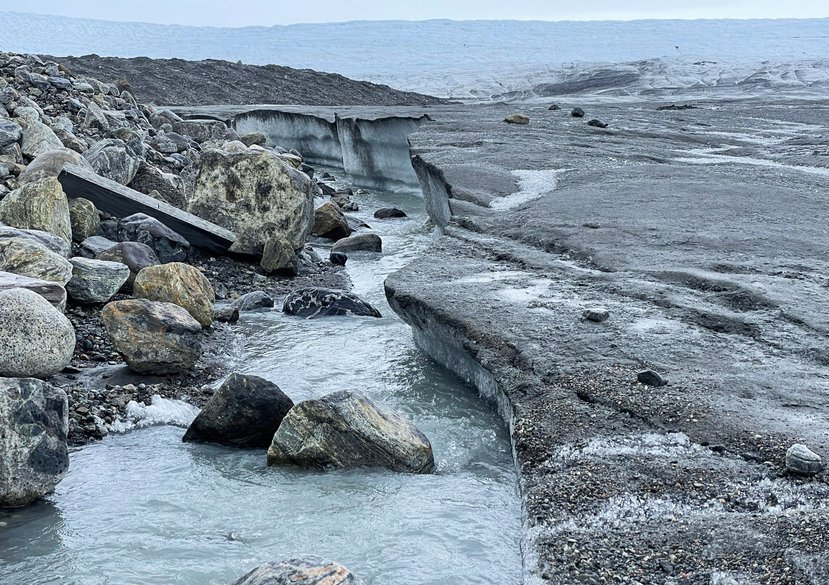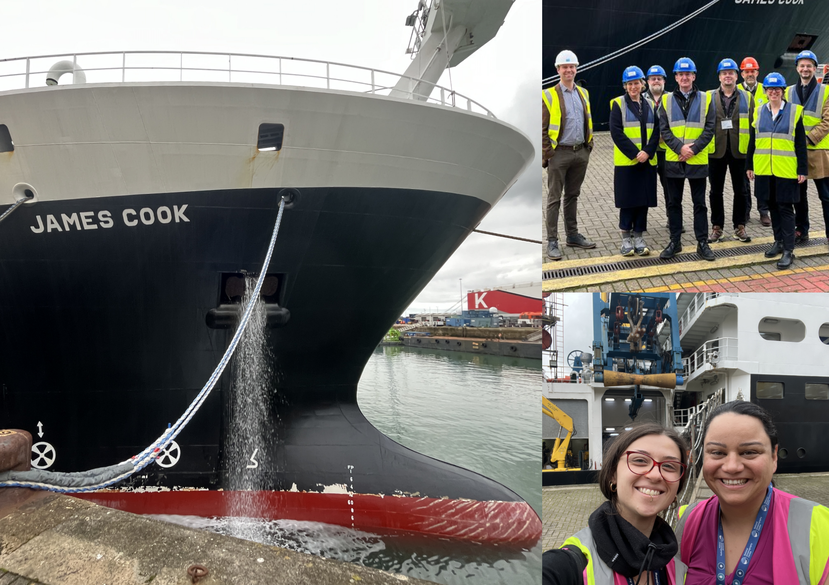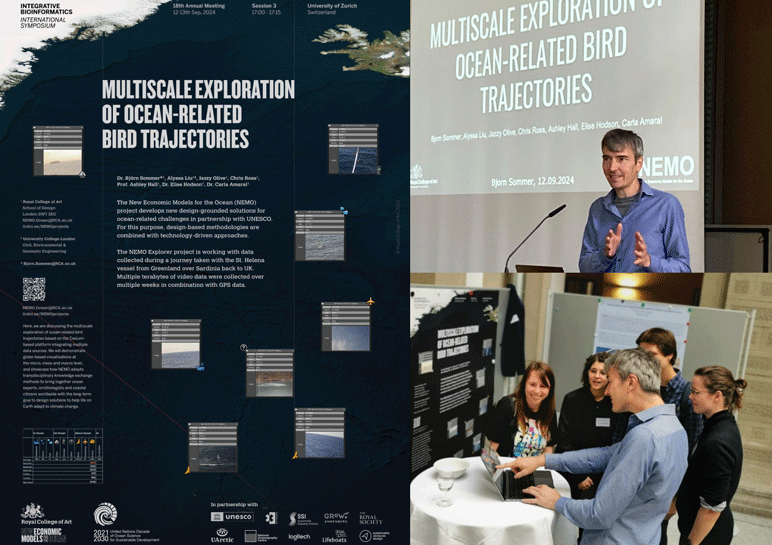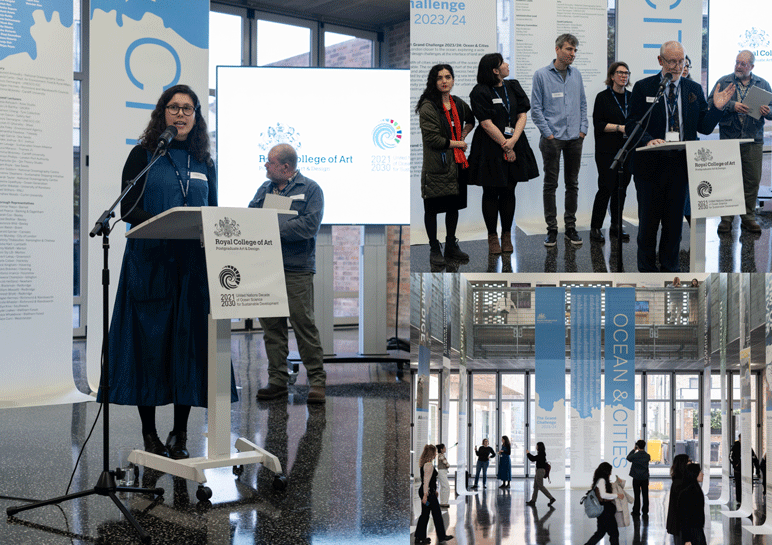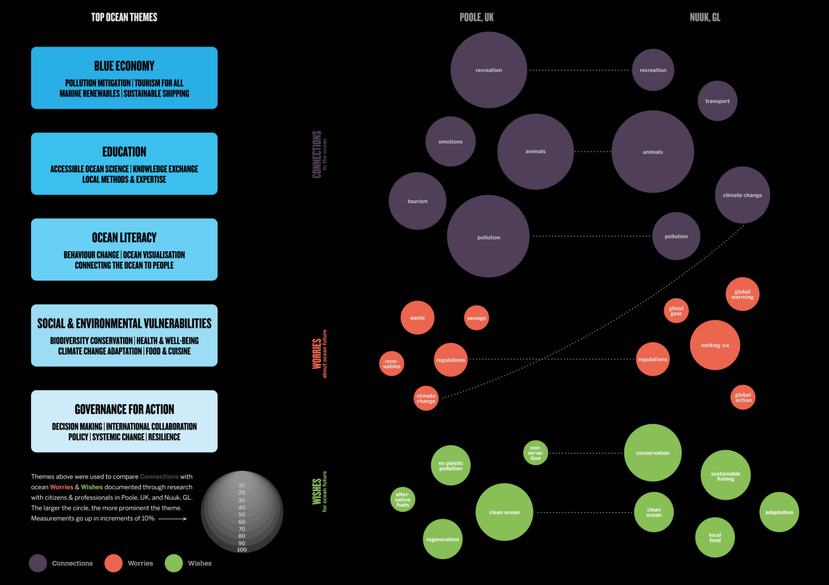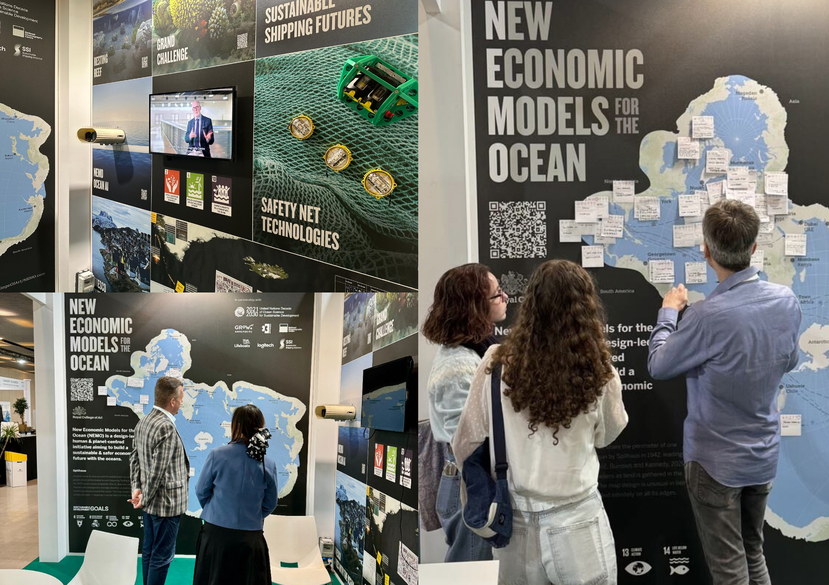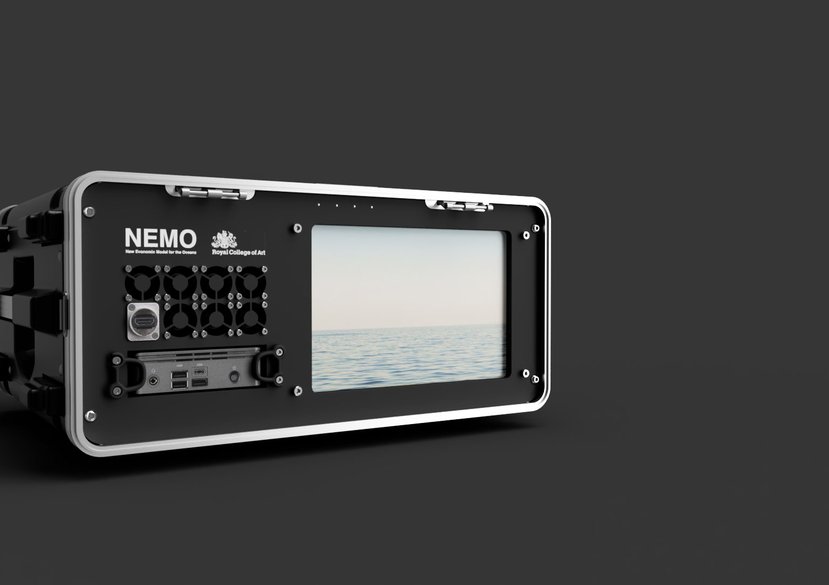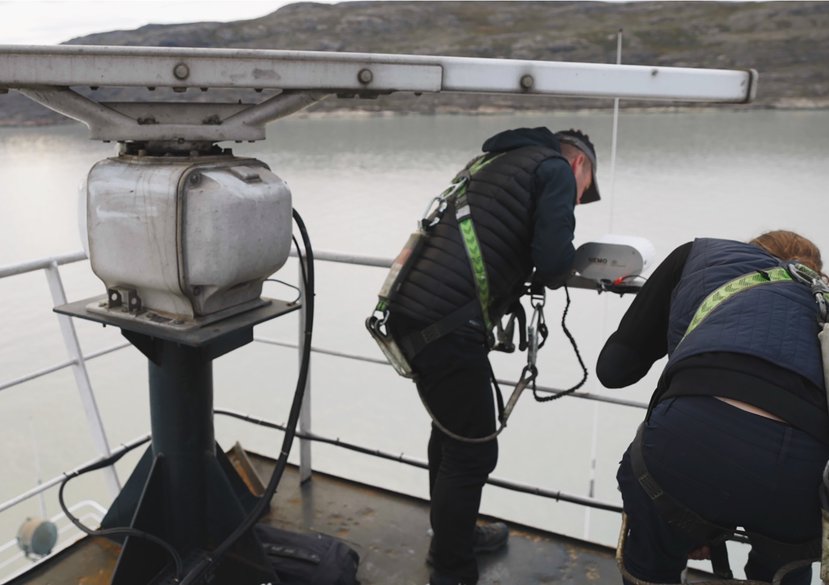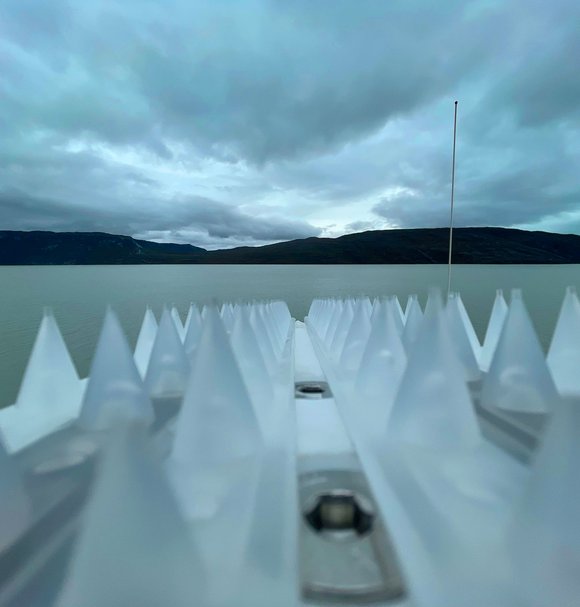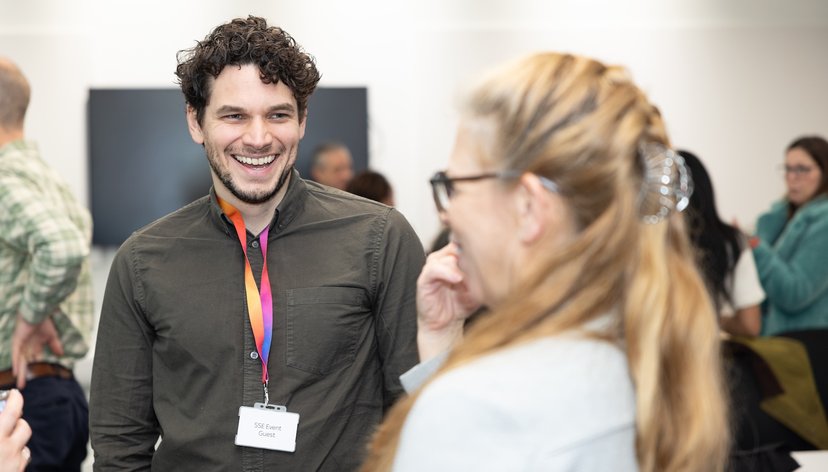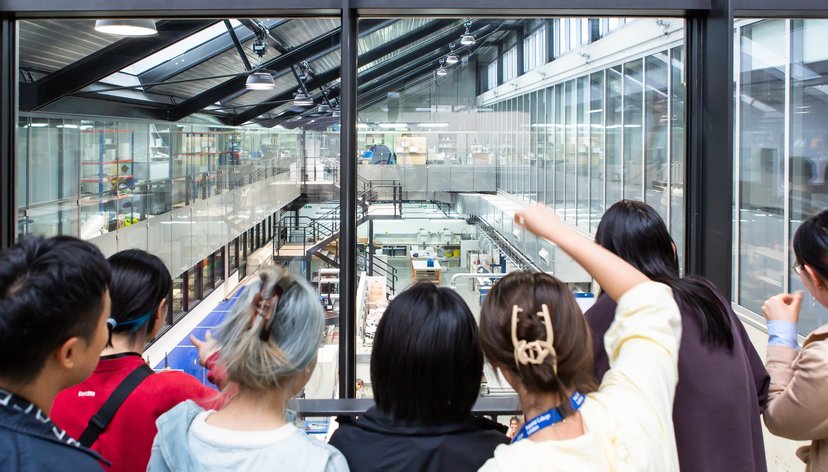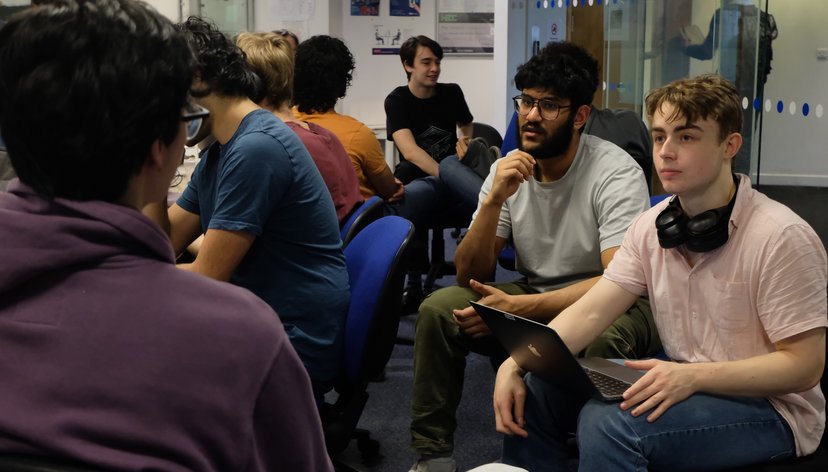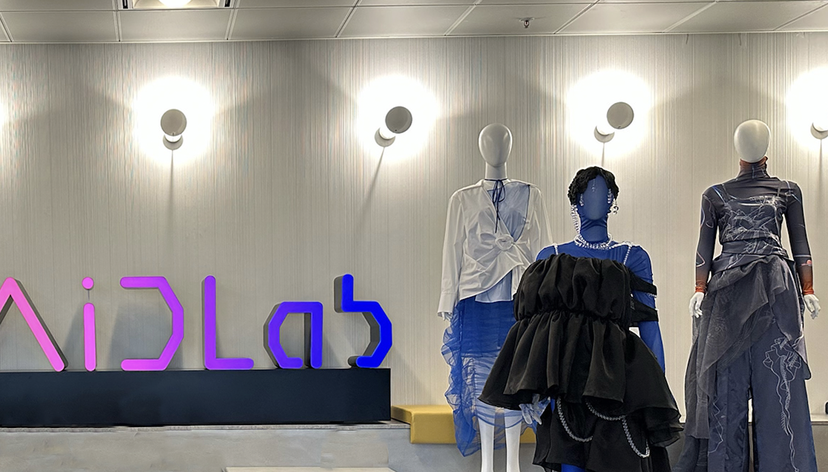
NEMO is a multi-year project for human and planet-centred futures focused on achieving sustainable socio-economic interactions with the ocean.
At a glance
- Researching and designing to address major climate impacts in and around the ocean to create balanced and sustainable economic and behavioural models for the future.
- Facilitating ocean science to connect new knowledge with impact actions and stakeholder communities.
- Co-designing innovations that go beyond ‘human first’ and address ocean ecosystem values at local and planetary levels.
Key details
Gallery
More information
The challenge
The ocean represents the most sensitive climate tipping points on earth. It is also one of the most challenging places to link human activity on land to climate change. Design research can provide new perspectives and insights for this hard-to-reach environment, leading towards meaningful co-designed solutions to improve future ocean economies.
Our current research has been supported by Logitech, Extreme-E and the RNLI. We are also a UNESCO global implementation partner for the Ocean Decade initiative.
Our mission
NEMO is a global initiative consisting of a series of projects, co-designing ocean futures with diverse communities of interest including scientists, designers and citizens.
NEMO Ocean Data: involved designing and installing an AI camera sensor package onto the St Helena, a ship sailing between Kangerlussuaq in Greenland and Poole in the UK via Sardinia in Italy. The significance of this journey is connecting the Russel Glacier in Greenland, where the sea is receding, to Poole, UK where the sea is rising, and on to the heart of Europe, one of the major contributors to global warming.
The cameras helped us to create a cross section analysis by identifying diverse objects on the surface of the ocean. This data was then fed into a data visualisation supporting the connection between human actions on land for tackling ocean climate and pollution issues. We surveyed over 6,000 nautical miles of ocean generating over 24,000 nautical miles of footage - enough to go around the world. The NEMO team identified over 3,600 objects above, on and in the ocean.
NEMO Coastal Communities: examines relationships between coastal communities and the ocean in the UK and Greenland to understand connections between the ocean, local knowledge and cultures. Community engagement activities will help to bridge scientific data with human behaviour and lived experiences. It will support further opportunities for collaboration and participatory design.
NEMO Grand Challenges: the RCA Grand Challenge (GC) is the biggest single-institution postgraduate design project in the world, and a unique and innovative learning experience for MA students in the School of Design.
- Grand Challenge 2021/22 New Economic Models for the Ocean tasked students with designing innovative solutions in partnership with Logitech and supported by Extreme-E and Sustainable Ventures.
- Grand Challenge 2022/23 Engaging Communities for Generating Marine Sustainable Economies tasked students with exploring how design can leverage and stimulate citizen science-led practices for increasing the health and productivity of the world’s oceans in partnership with RNLI volunteers.
NEMO and UNESCO Ocean Decade Partnership: a unique partnership using design and innovation to help deliver the sustainable future ocean we all want.
Future plans include supporting and connecting coastal cities around the world to exchange knowledge and co-design solutions for resilience and ocean-related challenges.
NEMO are members of UArctic (University of the Arctic). The project has also collaborated with Sustainable Ventures Design.
Outputs
NEMO and UNESCO Ocean Decade Partnership
Winners of the Grand Challenge 2021/22: New Economic Models for the Ocean
BBC - Marine designs: Students present ideas to protect oceans
Design Week - The designs using citizen power to clean up the oceans
Royal College of Art signs Memorandum of Understanding with the National Oceanography Centre
